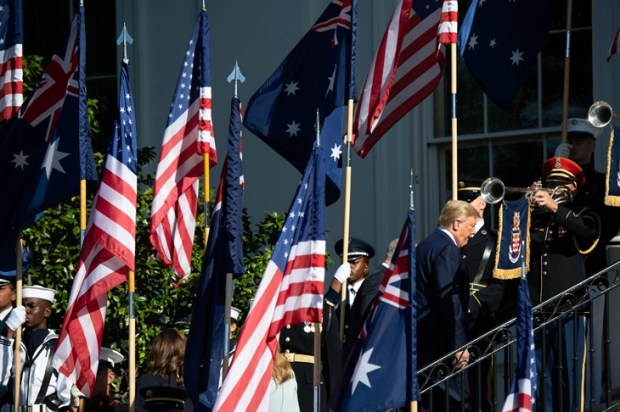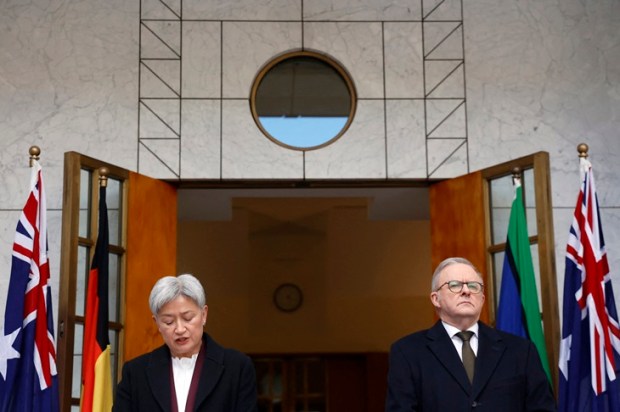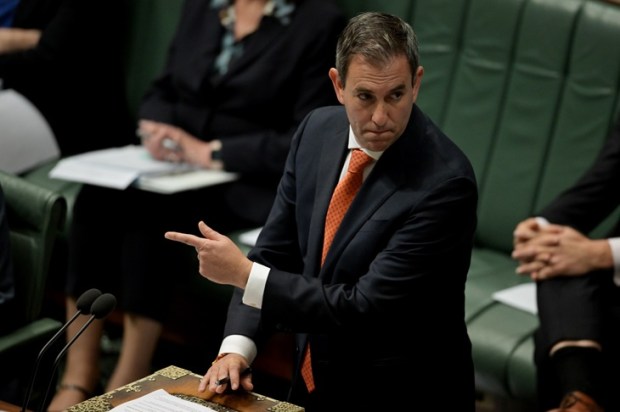As Dennis the peasant tells John Cleese, the King: ‘Strange women lying in ponds distributing swords is no basis for a system of government… You can’t expect to wield supreme power just ‘cause some watery tart threw a sword at you!’ (Monty Python and the Holy Grail).
What sort of person would repudiate the Once and Future King, Arthur and Guinevere of Camelot, who will return to save England at the hour of her greatest need?
Australia too has its critics like Dennis the peasant. The poet A.D. Hope said Australia had ‘five cities, like five teeming sores … where second-hand Europeans pullulate…’ Where men aspire not to ‘live’ but ‘survive’. Australia could be seen as a medical affliction.
Donald Horne said we were ‘lucky’. But with leaders and ethos which were ‘second-rate’.
Far more damning, almost unrepeatable descriptions of our country are widespread today.
A polite version is: ‘Imaginative, hopeful, altruistic and ambitious, and those who are defensive and inward-looking.’ Some suffer ‘terra nullius of the mind’! (Julianne Schultz in The Idea of Australia).
But they also turned uncleared bush into thriving businesses that Australian families lived off, including shearers, who had nothing. Others found vast mining wealth. Something to celebrate, if you want an economy and jobs.
The supermarket approach to life is unrealistic.
We are buying and eating meat which is safely wrapped in plastic on a shelf, while attacking the land-use that led to cattle and sheep. We are eating English vegetables. We drive on roads that the colonists built, speak their language, and vote for Parliaments they gradually developed. Our children go to the schools and our sick visit hospitals built by their charity and taxes. We do so without documenting their history, ideas, and labours.
Our early leaders usually had a practical bent, by necessity.
Robert Garran cautiously called his autobiography Prosper the Commonwealth. He helped draft the Australian Constitution. Then he set up the first federal departments. He did not throw large landowners off buildings.
Alfred Deakin, the greatest of our early Federation leaders, simply said:
‘The ultimate question for each of us is, what is best for the people…?’
The brilliant lawyer McMinn said that Australian self-government in the 1850s was the result of ‘mundane administrative grievances’. Henry Parkes claimed Federation would lead to militias in each colony uniting and uniform railway gauges!
‘To the barricades’ for uniform railway gauges did not work particularly well.
The lack of ringing, strident ideals has always frustrated and puzzled our intellectual classes, who also acknowledge the early common citizenship of an aged pension, and other measures. Albert Métin called Australia ‘socialism with no doctrine’.
Australia never had socialism or an Enlightenment moment of crisis when, ‘Bliss it was in that dawn to be alive, but to be young was very heaven,’ as Wordsworth wrote of the French revolution.
We gained the Enlightenment dreams of the US and France, a liberal democracy, and one man one vote, through an 1850 British Act of Parliament. It was accepted after vigorous Australian petitioning and voting using ancient British liberties and then parliamentary debate.
Federation in 1901 was recognisably British/Australian political practice.
What were McMinn’s ‘mundane administrative grievances’ of the 1850s? New South Wales and the Colonial Office disagreed over a boatload of convicts. Victorians wanted to break away from New South Wales and form their own state.
Victorians even elected Earl Grey, the Colonial Secretary as their member in the NSW Parliament in 1848, to annoy him.
Surprisingly, Earl Grey did not leave London, and his extensive palatial country estate, to travel in a small wooden ship for months to distant, dusty, roistering Sydney to take up his seat in the Legislative Council.
The streets of Sydney were after all full of ex-convicts drinking rum. And behaving badly.
This is not the ‘words are violence’ school of modern thought.
They were hitting people and rioting during elections.
Our parliaments gave Aboriginal and Chinese men the vote. They occasionally exercised it even in the 1850s (before it was partly taken away with Federation).
The Eureka stockade was violent and the 1890s Great strikes involved armed militias. There was violent conflict between Aboriginal people and colonists as well as peaceful interaction and liberalism. It is ‘complicated’, writes one Aboriginal academic and leader.
Colonists puzzled over whether an Aboriginal murder of one of his wives was the result of Aboriginal ‘laws’ or ‘private revenge’ (South Australian Register, 8 July 1837). Aboriginal traditional life, good and bad as it was, was documented in books by Edward John Eyre in 1845 and George French Angus in 1862 and others.
From the beginning, we were locked in civil debate over mundane administrative grievances. In perpetuity.
This led to ‘the light on the hill’ results. With functional health and education systems sustained by a first-world market economy, and a prudent ‘fair go’ resulting from both struggle and resistance.
This, not aspiring to glorious suffering, death, brutality, and trouble, was after all the real basis of the European Enlightenment.
And it was ‘very bliss to be alive’. Compared to the old country or anywhere else.
Get used to it!
And we should also be kinder rather than ruthlessly unpleasant about our founding myths. An ordinary patriotism fulfils basic human needs and is more than reasonable on the facts. Yeats said, ‘Tread softly because you tread on my dreams.’
Soggy maidens holding a sword in a pond were the first system of government that many of us noticed.
Applying Australian practical precepts to the recent US elections, Australians would not tolerate open borders for a moment. Fewer here subscribe to the key principle of the US humanities that all white men are evil. Any President should be given a ‘honeymoon’ rather than immediately initiating the ‘Mueller report’ to remove him. A ‘movement’ of hardworking, patriotic, tax-paying Americans, who would contribute to any country, should be conciliated not hated. Budget discipline matters.
By Reg Hamilton, Adjunct Professor, School of Business and Law, Central Queensland University

























